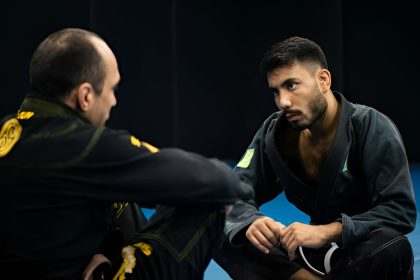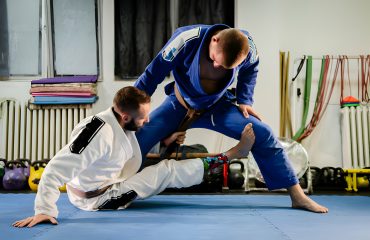
The physical demands on law enforcement officers are immense, requiring not only peak physical condition but also advanced tactical skills. Brazilian Jiu-Jitsu (BJJ), known for its effective control techniques and emphasis on leverage over brute strength, has emerged as an essential training tool for law enforcement professionals. This article explores how BJJ equips officers with the skills necessary for enhancing control, compliance, and safety in their demanding roles. At Noco Jiu-Jitsu and Self-Defense, we understand the unique challenges faced by law enforcement personnel, and our specialized BJJ programs are designed to address these needs, fostering a safer, more effective approach to modern policing.
The Fundamentals of Brazilian Jiu-Jitsu
Brazilian Jiu-Jitsu (BJJ) emphasizes the use of leverage, control, and technique over brute strength, making it an effective martial art for individuals regardless of size. It’s a discipline that rewards patience, precision, and strategic thinking, with a strong foundation in ground fighting and submission techniques. This focus on leverage and control makes BJJ particularly adaptable for law enforcement purposes, where officers must often subdue suspects without causing unnecessary harm.
The principles of BJJ align well with the needs of law enforcement, providing officers with methods to control and neutralize threats efficiently. Techniques taught in BJJ, such as holds, joint locks, and chokes, can be applied with the aim of minimizing injury to both the officer and the individual being detained. This emphasis on control over strength allows for safer resolutions in confrontational situations, underscoring the importance of technique and strategy in physical engagements.
Improving Arrest Techniques
Brazilian Jiu-Jitsu (BJJ) training equips law enforcement officers with a skill set that prioritizes leverage and technique over brute force, making arrest techniques more about control than confrontation. This approach is particularly effective in situations where minimal force is required, allowing officers to handle arrests smoothly without escalating violence. Furthermore, BJJ’s focus on positional control enables officers to secure suspects safely until backup arrives, if necessary, reducing the likelihood of escape or harm to the officer. By integrating BJJ principles into arrest techniques, law enforcement agencies can enhance the safety and compliance of both officers and the communities they serve, promoting a more harmonious interaction during potentially volatile situations.
Building Confidence and Decision-Making
Brazilian Jiu-Jitsu (BJJ) plays a pivotal role in enhancing law enforcement officers’ confidence by equipping them with a profound understanding and mastery of self-defense techniques. This confidence stems not just from physical prowess but from the knowledge that they can handle various situations with minimal force and maximum control. Furthermore, BJJ’s emphasis on technique and strategy over brute strength fosters a mindset that values intelligence and patience, traits that are crucial in high-stakes law enforcement scenarios.
In addition to boosting confidence, BJJ significantly improves decision-making abilities under pressure. The dynamic and unpredictable nature of sparring sessions mirrors the uncertainties officers face in the field, training them to make quick, effective decisions. This practice of assessing situations rapidly and responding appropriately is invaluable, not only in physical confrontations but in all aspects of law enforcement work, where every decision can have significant consequences.
Reducing Reliance on Lethal Force
Brazilian Jiu-Jitsu (BJJ) serves as a pivotal tool for law enforcement and self-defense practitioners, focusing on control and restraint rather than causing harm. Its techniques allow for the safe neutralization of threats, emphasizing holds and locks that subdue an opponent without the need for striking or lethal force. This approach not only ensures the safety of the person being restrained but also protects the practitioner from potential legal and moral repercussions associated with excessive use of force.
Case studies across various law enforcement agencies have highlighted the effectiveness of BJJ in real-world scenarios. For instance, departments that have incorporated BJJ into their training regimens report a significant decrease in the use of firearms and other lethal methods. Instead, officers can confidently apply control techniques learned from BJJ to manage and de-escalate situations that might otherwise lead to injury or death. This shift not only fosters a safer environment for both law enforcement personnel and civilians but also aids in building community trust and reducing the instances of force-related controversies.
Enhancing Officer Safety
Brazilian Jiu-Jitsu (BJJ) offers a suite of defensive tactics aimed at safeguarding law enforcement officers during encounters, emphasizing technique, leverage, and control to minimize risk and ensure safety. These practices prioritize situational awareness and adaptability, essential in the dynamic environments officers often find themselves in.
Techniques in BJJ that protect officers from harm:
- 1. Positional Control: Gaining and maintaining a dominant position to minimize threats.
- 2. Disengagement Tactics: Techniques to safely disengage from an assailant when necessary.
- 3. Submission Holds: Applying non-lethal holds that can control an aggressor without causing permanent harm.
- 4. Ground Defense: Skills to protect oneself when taken to the ground, ensuring an officer can get back to their feet.
Strategies for maintaining control in unpredictable situations:
- Scenario Training: Practicing responses to various real-life situations to enhance quick, appropriate decision-making.
- Breathing Techniques: Utilizing controlled breathing to remain calm and focused under pressure.
- Continuous Assessment: Constantly evaluating the situation to adapt the response as needed.
- Verbal Jiu-Jitsu: Employing verbal skills alongside physical techniques to de-escalate confrontations.
By incorporating these BJJ techniques and strategies into their training, law enforcement officers can significantly enhance their personal safety. These methods not only prepare officers to handle physical confrontations more effectively but also contribute to reducing the need for excessive force, promoting safer interactions for both officers and civilians.
Physical Fitness and Mental Resilience
Brazilian Jiu-Jitsu (BJJ) training offers comprehensive benefits that extend far beyond the mat, significantly contributing to both physical fitness and mental resilience. This martial art demands and develops a high level of physical conditioning, including strength, flexibility, and endurance, which are critical for law enforcement officers facing the physical challenges of their duties.
- Physical Conditioning: Regular BJJ practice improves cardiovascular health, muscle tone, and overall physical endurance. These attributes are essential for law enforcement officers, enabling them to handle physical confrontations and the demands of their jobs with greater ease.
- Stress Management: BJJ serves as an excellent form of stress relief, allowing practitioners to channel their physical and mental energies into a disciplined form of exercise. The focus required during training helps clear the mind, reducing stress levels and enhancing mental well-being.
Moreover, the mental toughness and resilience developed through consistent BJJ training are invaluable. The strategic nature of BJJ, often referred to as “human chess,” requires practitioners to think several moves ahead, fostering a mental sharpness and problem-solving ability that translates well into law enforcement scenarios.
- Mental Toughness: Regular exposure to challenging situations in training helps build a strong mental fortitude, preparing officers to remain calm and collected under pressure.
- Resilience: The perseverance needed to progress in BJJ, facing and overcoming setbacks, builds resilience that is crucial for the psychological demands of law enforcement work.
These dual benefits of BJJ training ensure that law enforcement officers are not only physically prepared to perform their duties but are also equipped with the mental resilience to handle high-pressure situations with confidence and composure.
Building Rapport within the Force
Training together in Brazilian Jiu-Jitsu (BJJ) offers law enforcement officers more than just physical conditioning and self-defense skills; it serves as a pivotal foundation for building a strong sense of camaraderie and teamwork. As officers pair up to drill techniques, they learn to trust one another, share successes and challenges, and develop a deeper understanding of each other’s strengths and weaknesses. This shared experience not only enhances their ability to work together effectively on the mat but also translates into better coordination and cooperation in the field. The bonds formed through the sweat laughs, and sometimes frustrations of training can turn colleagues into a tightly-knit unit, ready to back each other up in any situation. Consequently, BJJ becomes a powerful tool in strengthening the fabric of unit cohesion, making the force more unified and effective in facing the challenges of law enforcement work.
Legal and Ethical Considerations
In Brazilian Jiu-Jitsu (BJJ) training tailored for law enforcement, a significant emphasis is placed on understanding the legal implications of applying force. This knowledge is critical, as officers must make split-second decisions that align with both the law and departmental policies. BJJ instruction incorporates scenarios that simulate real-life encounters, providing officers with the skills to apply techniques that are effective yet measured. The goal is to ensure that every application of force is not only legally justified but also ethically sound, minimizing unnecessary harm to all involved parties.
Furthermore, BJJ training programs stress the importance of restraint and adherence to legal standards, highlighting the distinction between control and excessive force. By instilling these principles, officers learn to maintain public safety and trust while protecting themselves in the line of duty. The nuanced approach taught in BJJ enables officers to navigate complex situations with confidence, ensuring their actions are defensible and in line with the highest standards of professional conduct.
Customizing Training for Law Enforcement
Specialized Brazilian Jiu-Jitsu (BJJ) programs for law enforcement professionals are carefully designed to align with the unique demands of police work. These programs focus on adapting BJJ techniques to enhance officers’ ability to control suspects effectively, prioritize safety, and apply force judiciously, minimizing the risk of injury to all parties involved. Scenario-based training plays a crucial role in this customization, offering officers practical experience in situations they’re likely to encounter on the job. By simulating real-life scenarios, officers can practice and refine their responses, ensuring they’re prepared for various challenges they may face in the field. This targeted approach ensures that law enforcement personnel not only learn BJJ as a martial art but also acquire specific skills that directly translate to improved performance and safety during their duties.
Ongoing Training and Skill Development
Continuous Brazilian Jiu-Jitsu (BJJ) training is crucial for law enforcement officers to keep their skills sharp and adaptive, ensuring they are prepared for the ever-evolving challenges of policing. The dynamic nature of law enforcement duties requires not just physical readiness but also mental agility to apply the most effective techniques in any given situation. Establishing regular training programs within law enforcement agencies fosters a culture of continuous improvement and readiness.
- 1. Structured Curriculum: Implementing a structured BJJ training curriculum that progresses from basic to advanced techniques ensures comprehensive skill development.
- 2. Scenario-Based Drills: Incorporating scenario-based drills that simulate real-life encounters can significantly enhance officers’ decision-making and application of BJJ techniques under pressure.
- 3. Regular Assessments: Scheduled assessments help monitor progress, identify areas for improvement, and motivate officers to reach higher proficiency levels.
- 4. Cross-Training Opportunities: Encouraging cross-training with other martial arts or self-defense systems can provide officers with a broader set of tools to draw from during physical confrontations.
By prioritizing ongoing training and skill development, law enforcement agencies can ensure their officers are not only well-prepared to protect themselves and the community but also capable of handling confrontations in the most controlled and effective manner possible.
Success Stories and Testimonials
The profound power of Brazilian Jiu-Jitsu training is evident in the experiences shared by law enforcement officers and units that have incorporated it into their regimen, with many attributing enhanced performance, improved officer safety and better community relations to the skills and principles learned through BJJ. Through partnerships with institutions like Noco Jiu-Jitsu and Self-Defense, officers have gained not just physical techniques but also invaluable psychological resilience and problem-solving abilities that translate well into their daily duties and interactions with the public.
Testimonials from these officers often highlight not only personal growth and increased confidence but also a profound appreciation for the art of BJJ as a tool for conflict resolution and stress management. Noco Jiu-Jitsu and Self-Defense take pride in these success stories, seeing them as a testament to the effectiveness of BJJ training in preparing law enforcement personnel for the complexities of modern policing, further emphasizing the role of martial arts in building bridges between law enforcement and the communities they serve.
Addressing Challenges in Implementation
Integrating Brazilian Jiu-Jitsu (BJJ) into law enforcement training programs presents several obstacles that can hinder its widespread adoption. These challenges often stem from both logistical and perceptual issues within departments.
- Resource Allocation: Many law enforcement agencies operate with limited budgets, making it challenging to allocate funds for additional training programs. Finding room in the budget for BJJ training requires demonstrating its cost-effectiveness and long-term benefits for officer safety and reduced liability.
- Schedule Management: Law enforcement officers have demanding schedules, making it difficult to find time for supplementary training. Implementing flexible training sessions or incorporating BJJ into existing training modules can help accommodate officers’ time constraints.
- Cultural Resistance: Some departments may resist adopting BJJ due to a preference for traditional training methods or misconceptions about martial arts. Educating decision-makers and officers about the practical benefits of BJJ for law enforcement can help overcome skepticism.
- Instructor Availability: Finding qualified BJJ instructors with experience in law enforcement applications can be a challenge. Partnering with local BJJ gyms or seeking certified instructors willing to tailor their teaching to law enforcement needs is essential.
Strategies for overcoming these challenges include:
- Highlighting Return on Investment: Emphasize BJJ’s role in reducing injuries to officers and suspects, which can lead to lower medical costs and fewer lawsuits, presenting a strong case for the investment.
- Flexible Training Options: Offering condensed courses, online modules, and regular short sessions can make BJJ training more accessible to officers.
- Success Stories: Sharing case studies and testimonials from other departments that have successfully integrated BJJ can inspire adoption and highlight the tangible benefits.
- Grants and Partnerships: Seeking grants or partnerships with local BJJ academies can offset training costs, making it financially feasible for departments to adopt BJJ training.
By addressing these challenges with thoughtful strategies, law enforcement agencies can successfully integrate Brazilian Jiu-Jitsu into their training regimen, enhancing the safety, effectiveness, and well-being of officers and the communities they serve.
Taking the Next Step Towards Integration
Law enforcement agencies ready to enhance their training protocols can initiate the integration of Brazilian Jiu-Jitsu by reaching out to experienced organizations that specialize in adapting BJJ for law enforcement needs. Noco Jiu-Jitsu and Self-Defense stand at the forefront of this specialized training, offering courses designed to enhance control techniques, compliance, and safety for officers in the field. With a curriculum developed through close collaboration with law enforcement professionals, our programs focus on real-world application, ensuring officers gain the skills necessary for effective and safe interactions.
For agencies interested in exploring how BJJ can transform their approach to physical training and conflict resolution, Noco Jiu-Jitsu and Self-Defense provide comprehensive consultation and tailored training solutions. Contact us to learn more about our programs and how we can help your agency incorporate BJJ into your training regimen. Our team of experienced instructors is ready to assist with program development, instructor certification, and ongoing support to ensure the successful implementation and integration of BJJ techniques into your law enforcement training.
The adoption of Brazilian Jiu-Jitsu in law enforcement training is not just a trend; it’s a shift towards smarter, safer policing practices. By focusing on control, compliance, and safety, BJJ equips officers with the skills necessary to navigate the challenges of modern law enforcement effectively, enhancing their ability to protect and serve with confidence. Furthermore, this training fosters mental resilience and physical well-being, contributing to the overall health of the force. Agencies ready to make this significant change should consider partnering with experts like Noco Jiu-Jitsu and Self-Defense to ensure their officers are prepared for whatever comes their way. Embrace the opportunity to revolutionize your law enforcement training program; reach out to Noco Jiu-Jitsu and Self-Defense today to discover how BJJ can be seamlessly integrated into your training regimen, setting a new standard in officer preparedness and community trust.




